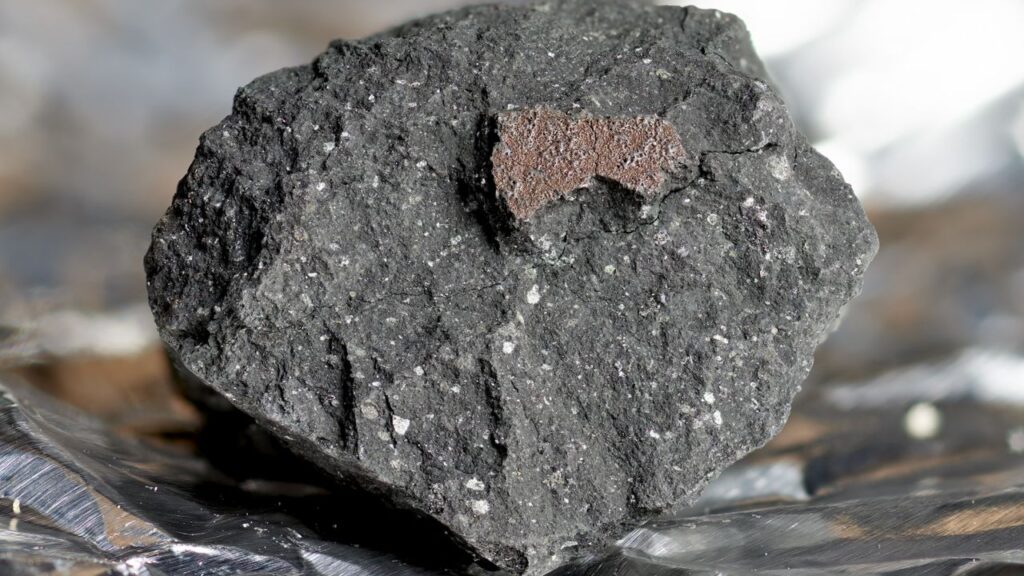With approximately 71% of the Earth’s surface covered by the essential molecule, many have wondered how water first arrived on the previously barren planet. However, the recent discovery of a peculiar meteorite may finally hold the answer to this age-old question.
The 4.6 billion-year-old meteorite landed in front of a family home in the English town of Winchcombe in February 2021. After being swiftly collected by authorities to minimize contamination, scientists confirmed it to be a rare carbon-rich rock known as a carbonaceous chondrite. Carbonaceous chondrites are considered to be one of the most primitive objects in the solar system, which makes them highly revered for their valuable insight into early conditions of space. The Winchcombe meteorite is “a tantalizing glimpse back through time to the original composition of the solar system,” said lead author Ashley King, a research fellow at the Natural History Museum in London.

To further analyze the attributes of the space rock, researchers polished, heated, and utilized X-ray machines; they discovered that 11% of the meteorite’s mass was water. This water was found in two forms: normal hydrogen and the hydrogen isotope deuterium, which synthesizes what is known as “heavy water.” Scientists found that the specific ratio between these two forms of water matched the ratio found on earth, which has led them to believe that both the meteorite’s water and Earth’s water came from the same origin. Evidently, water must have arrived first on Earth following a barrage of icy asteroids from outside of the solar system once the planet began to cool around 4 billion years ago. Amino acids, the building blocks of proteins, accompanied the water.
While the discovery of water’s origins and a couple of simple organic molecules may initially appear unimportant, the meteorite is a breakthrough in the field of geology. “One of the biggest questions asked of the scientific community is, how did we get here?” study co-author Luke Daly, a lecturer in planetary geoscience at the University of Glasgow, said in a statement. “This analysis on the Winchcombe meteorite gives insight into how the Earth came to have water — the source of so much life. Researchers will continue to work on this specimen for years to come, unlocking more secrets into the origins of our solar system.”
Not only does it provide a more enhanced understanding of how water arrived on earth and what it may mean for the solar system, the discovery of the Winchcombe meteorite has the potential to unlock biological secrets describing the development of humankind as well. Researchers have long theorized and debated upon which organic molecule was created first, as well as the methods by which they were synthesized. From underwater vent emissions, to the product of a highly reducing atmosphere and lighting, to a discrepancy on whether RNA or amino acids proteins came first, the meteorite discovery has the capability of putting all other hypotheses to rest. The breakthrough would explain the smallest substances that would form larger and more complex molecules, eventually forming humans and all other life on earth.
https://www.livescience.com/uk-driveway-asteroid-could-explain-ocean-origins
https://www.cnn.com/2022/11/17/europe/water-earth-asteroids-meteorite-gbr-scli-scn-intl/index.html

